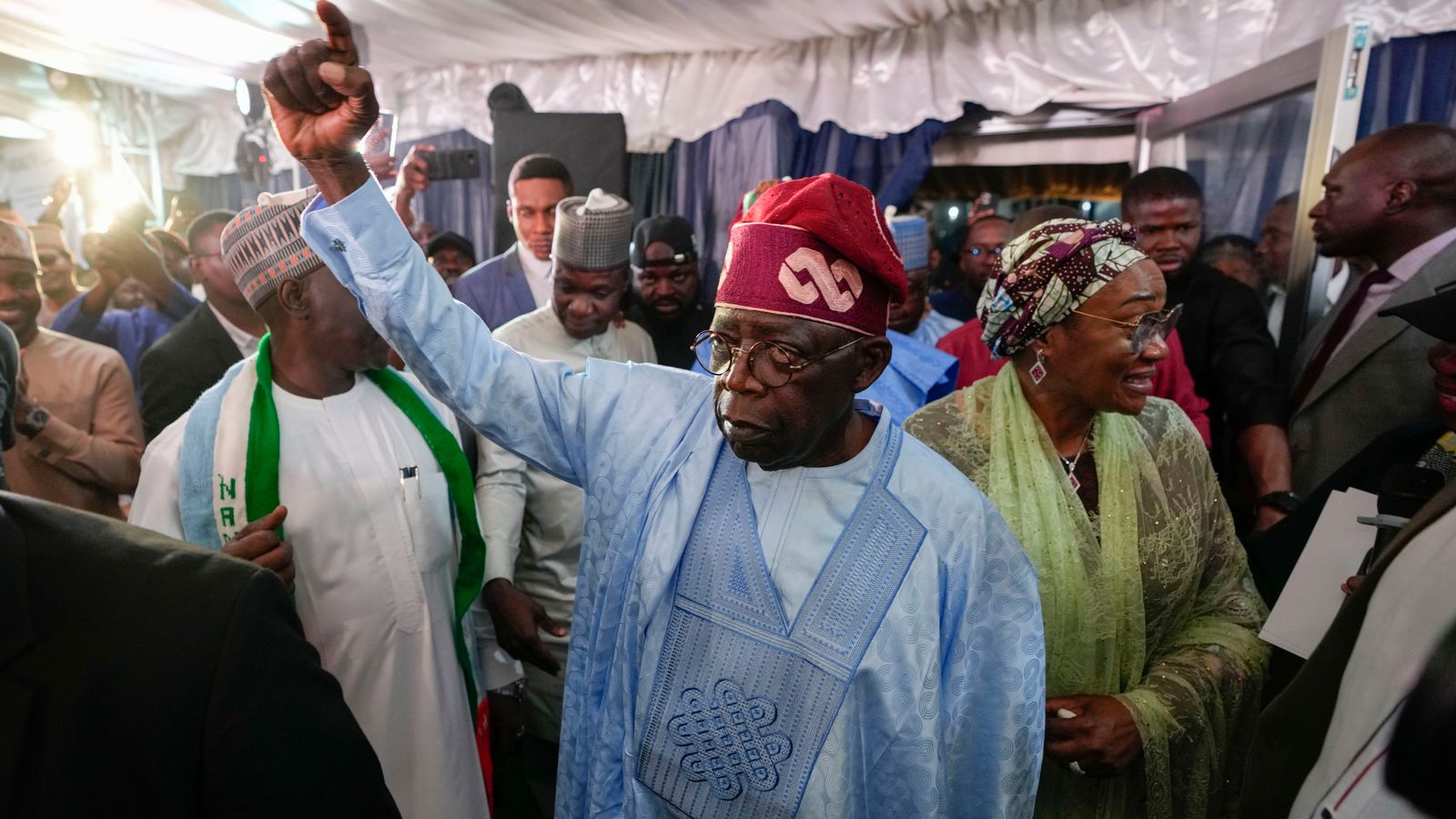Bola Tinubu has been declared the winner of Nigeria’s presidential election, despite early demands from rivals for a re-vote.
Mr Tinubu, who ran for the ruling All Progressives Congress party, received 8,794,726 votes, while Atiku Abubakar from the People’s Democratic Party came in second with 6,984,520.
The Labour Party’s Peter Obi, described as a wildcard who had been appealing to younger voters, finished third with 6,101,533 votes, according to the results announced by the Independent National Electoral Commission.
The two leading opposition parties have said that delays in uploading results left room for irregularities and Mr Abubakar and Mr Obi are expected to take their appeals to court.
The victorious All Progressives Congress party said they should accept defeat and not cause trouble.
The rivals have three weeks to appeal the results.
To have the election judged invalid, they will need to prove the national electoral body did not follow the law and acted in a way that could have changed the outcome.
Peter Obi takes Lagos in Nigeria’s closest ever presidential election
Nigeria election: All you need to know as Africa’s most populous nation votes for new president
Nigerian politician and wife plotted to bring street trader to UK to harvest kidney for ill daughter, court hears
Nigeria’s Supreme Court has never overturned a presidential election, despite a number of attempts by those defeated.
Read more:
Crowds chant ‘let us vote’ after delays at polling units as they queue to choose new president
Nigeria’s next president faces Herculean task to heal Africa’s giant
According to Mr Tinubu’s campaign website, he was born in Lagos in 1952 to a Muslim family from the Yoruba ethnic group, but some say he is older than this.
He moved to the US in the 1970s and worked in a number of jobs – dishwasher, taxi driver, and night guard – to pay for his education.
In 1979 he graduated from Chicago State University with a business administration degree, returning to Nigeria in the 1980s, working initially as an auditor for oil company Mobil.
He was elected governor of Lagos in 1999 after military rule was ended.
He served two terms, with opinions divided on his success – supporters say he improved infrastructure but others say the city is still deeply dysfunctional.







